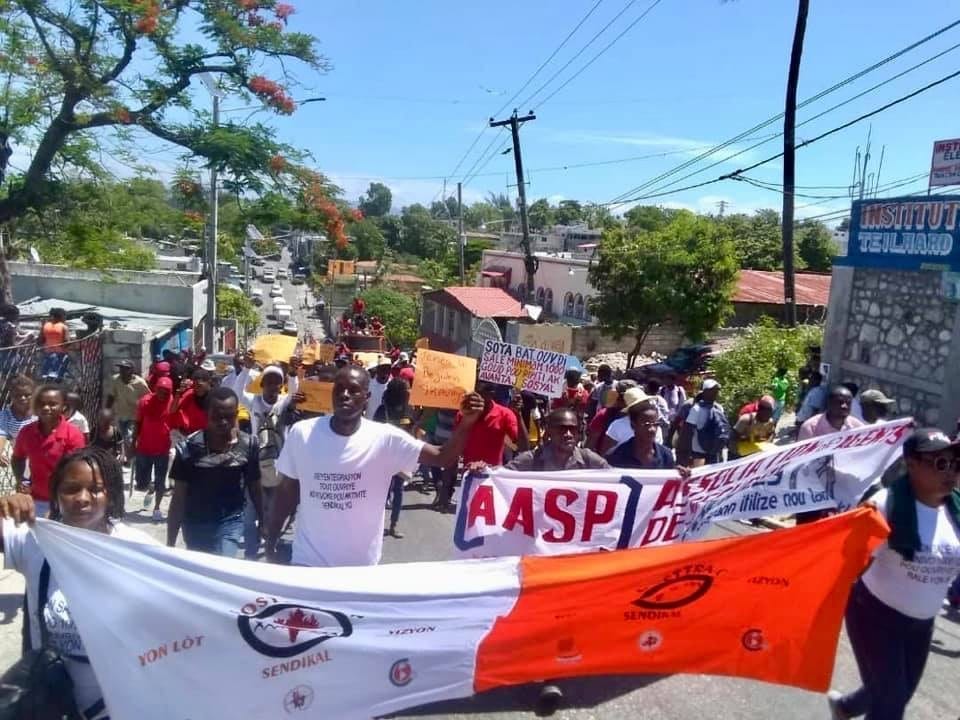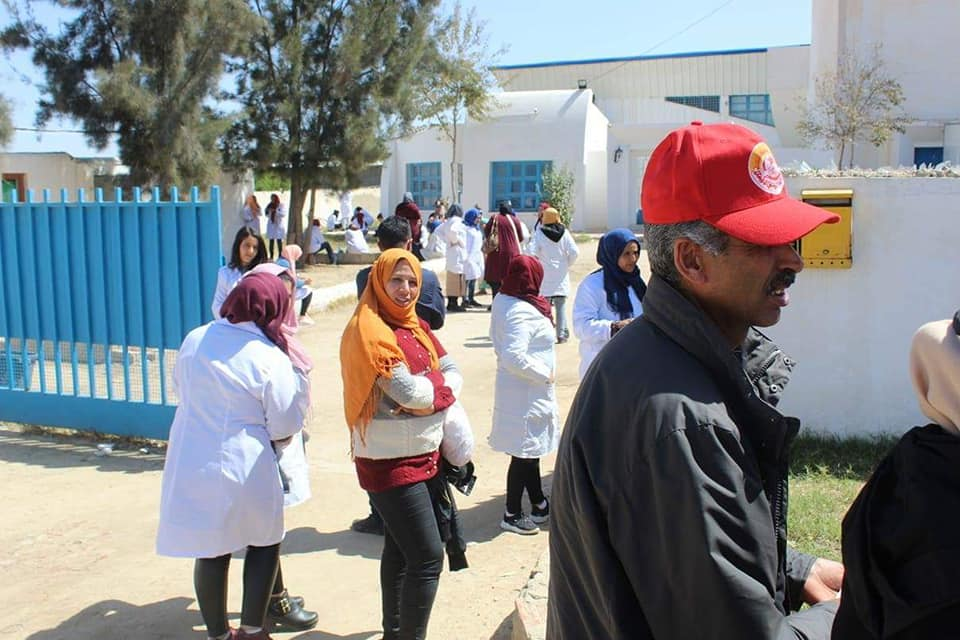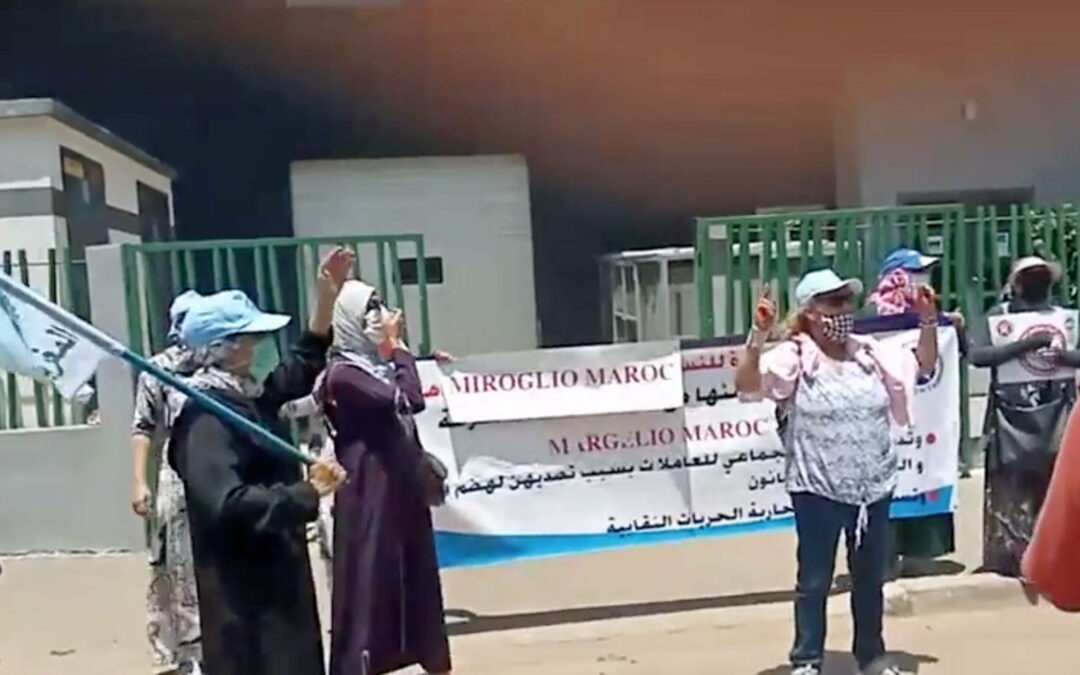Oct 13, 2020
“Fashion’s unpaid bills have been catastrophic for garment workers. A September report co-written by the European Center for Constitutional and Human Rights, the WRC and the Solidarity Center’s ILAW network showed that these debts have led to mass layoffs (at least 1 million garment workers in Bangladesh, 150,000 in Cambodia), while the Clean Clothes Campaign found that millions of workers remain unpaid for the work they did at the beginning of the pandemic.”
Sep 14, 2020
“We see desperate workers willing to accept very low wages in extremely dangerous conditions, with no serious health and safety protections, let alone social distancing measures or personal protective equipment,” said Jon Hartough, Solidarity Center Bangladesh program director. When Bangladesh reopened hundreds of garment factories in April, thousands of desperate workers flocked back to overcrowded industrial areas, including the capital of Dhaka, which currently has the bulk of the country’s reported coronavirus infections.

Sep 14, 2020
As the U.S. Congress considers renewal of the Caribbean Basin Trade Partnership Act (CBPTA) for Haiti, labor rights provisions must be enforced for trade benefits to reach 57,000 Haiti garment workers, says Solidarity Center Americas Regional Program Director Lauren Stewart.
Testifying before the House Ways and Means Committee Thursday, Stewart says labor violations persist at garment factories because authorities do not impose or collect fines for infractions and the government has not effectively enforced the law—as also noted in a 2019 U.S. State Department human rights report. Noncompliance with internationally recognized worker rights is among criteria for CBTPA eligibility for beneficiary countries. (Read Stewart’s written testimony here.)
Further, trade preference programs with Haiti, such as the CBTPA, which allows duty-free access for Caribbean countries to the U.S. markets, have not specified labor rights enforcement “in a way that there is actual teeth,” Stewart said.
Solidarity Center union partners in Haiti say trade agreements should specify the amount of time a factory can be in noncompliance before losing its trade preference eligibility, and should be required to demonstrate progress in remedying violations before being readmitted, she says. Further, unions say there should be a limited number of times a noncompliant factory can be admitted to trade preference programs.
Haiti Garment Workers Struggle to Form Unions

Trade preference agreements for Haiti’s garment industry must include enforcement for decent working conditions and freedom to form unions—Lauren Stewart
With labor abuses unaddressed, garment workers endure poor working conditions and low wages: A 2019 Solidarity Center living expense survey estimated the minimum wage for garment workers in Port-au-Prince at least three times less than basic cost of living.
But because the country has a history of repressing worker efforts to form unions to improve working conditions, many workers fear exercising their right to freedom of association.
“Trade preference programs that enforce workers’ right to organize and bargain is critical to improve working conditions in Haiti,” Stewart told committee members.
There is only one authentic collective bargaining agreement in the garment sector—which means “the great majority of workers are unable to negotiate higher wages and lack a voice in shaping the terms of their labor,” Stewart said.
Although the CBTPA and other trade preference programs in the Caribbean Basin Initiative have stimulated Haiti’s garment industry, Stewart says the economic gains of garment industry have not translated into decent wages and working conditions.
Enforcing worker rights provisions in the CBTPA is “critical to guaranteeing internationally recognized worker rights and fostering the rule of law, both of which are necessary to promote stability and economic development in Haiti,” Stewart said.
The CBPTA expires September 30 and Congress is considering its renewal to 2030.
Witnesses also included Republic of Haiti Ambassador Hervé H. Denis, Georges Sassine, Association des Industries d’Haïti board member, Beth Baltzan, principal at American Phoenix Trade Advisory Services and Jerry Cook, Hanesbrands vice president for government and trade relations.

Sep 9, 2020
The Tunisian General Labor Union (UGTT) is calling on employers and the government to join with it in addressing the severe challenges textile workers are facing during the COVID-19 crisis and negotiate an action plan to guide the struggling garment sector.
Some 160,000 workers, the vast majority of whom are women younger than age 35, work in Tunisia’s textile industry, which accounts for 34 percent of the country’s manufacturing sector. Following the country’s coronavirus lockdown, workers lost jobs and pay, in part because the industry experienced a 45.2 percent decline in textile exports in March from the previous year, according to the National Institute of Statistics in Tunisia. Many corporate brands also canceled “mid-season” orders.
But crucially, employers also took advantage of the COVID-19 crisis to cease or suspended paying workers’ social security benefits or family allowances, such as food tickets, under the pretext of force majeure, union leaders say. Employers coerced workers, especially new employees, into signing fixed-term contracts and giving up their status as permanent workers. Workers also say some employers blocked their efforts to form unions to gain fundamental rights on the job, closed union offices—prohibiting workers from meeting in the office even outside working hours—and removed posters and other legally placed union material from worksites.

Habib Al-Hazami. Credit: General Federation of Textile Leather and Footwear
“All trade union activists and the General Federation affirm that the garment and textile sector in Tunisia has been marginalized and is facing a crisis,” says Habib Al-Hazami, general secretary of the General Federation of Textile, Leather, and Footwear.
In April, the Tunisian General Labor Union (UGTT) and the Tunisian Federation for Industry and Trade entered into a landmark agreement on workers’ wages, including textile workers’ wages. The government agreed to contribute $73 per worker, with the remaining salary paid by employer. Employers also agreed to register unregistered workers with the National Social Security Fund within a month after the agreement to ensure they are eligible for social benefits.
Although the lockdown ended June 27 and many factories resumed nearly full production, union leaders say worker rights’ violations persist, with factories not following government regulations to slow the spread of the novel coronavirus.
In calling for discussions with employers and the government, UGTT is seeking to:
- Strengthen job security for garment and textile workers by reducing short-term contracts and increasing formal employment.
- Examine how best to restructure the sector with a focus on ethical market competition so workers do not bear the brunt of corporate brands’ rush for products at the lowest cost.
- Take urgent steps to end gender-based violence and harassment at work and ensure decent working conditions.
- Increase workplace inspections to monitor potential safety and health violations.
- Create space for workers to form and join unions so they have a voice on the job.

Aug 7, 2020
Garment workers at the Miroglio Maroc factory are standing strong with 14 co-workers who they say were fired for speaking out against the lack of sufficient safety gear and other protective measures at the workplace during the novel coronavirus pandemic.
Three workers were recently diagnosed with COVID-19, and the 14 fired workers alerted authorities to the unsafe working conditions at the plant, where up to 250 workers make ready-wear garments. The employer says he fired the workers, eight of whom are union members, for “defamation,” that is, allegedly attacking the reputation of the company.
Yet the Moroccan Labor Union (UMT) says the owner also fired workers who took part in forming the factory union in April. The employer also sought to intimidate the 14 fired workers, all of whom worked at the factory between five and six years, by calling in a judicial commissioner, a move the UMT says violates Morocco’s labor law. Their union, the Union Office of Miroglio Marco, is affiliated to the Federation of Garment, Textile, and Leather Workers/UMT.
Factory union leaders say the employer refuses to pay the fired workers for May and June, and demanded they sign a statement saying they will not strike, a move prohibited by the country’s labor law. Further, union representatives say the general manager has verbally harassed women garment workers who requested safety and health protections.
Workers now are waiting for the results of their COVID tests, which the company was forced to undertake after the workers alerted authorities.
Employers worldwide are penalizing and even firing workers who demand their rights to safety measures to protect against COVID-19, and are using the pandemic to lay off workers, often targeting those seeking to form unions or exercise their rights on the job. But, together with their unions, workers are fighting back.
Clapping as they rallied outside the plant in Casablanca’s Albarnoussi industrial district in recent days, the workers chanted, “We do not want injustice, we do not want to strip women of their rights.”
“Long live the Moroccan labor union.”





